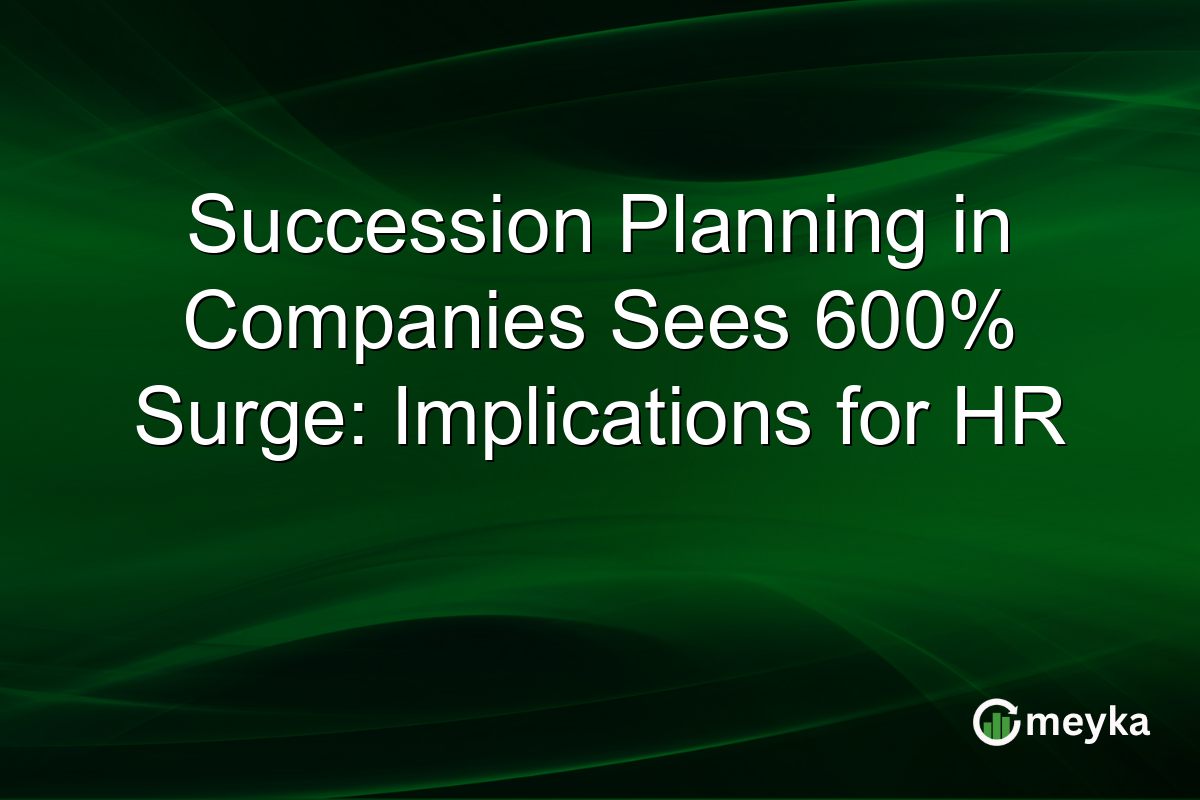Succession Planning in Companies Sees 600% Surge: Implications for HR
Succession planning is experiencing a 600% surge in interest among companies, signalling a significant shift in corporate leadership strategy. As many senior executives approach retirement, businesses in the UK and globally are focusing more on ensuring seamless transitions. This trend is further validated by a spike in Google searches, highlighting its growing importance in corporate landscapes.
Continue Reading on Meyka
This article is available in full on our main platform. Get access to complete analysis, stock insights, and more.
Read Full Article →





